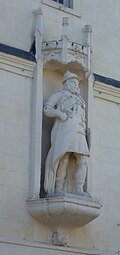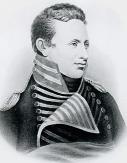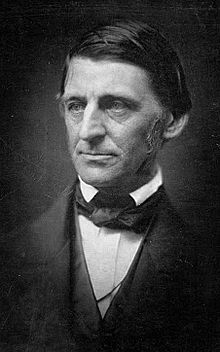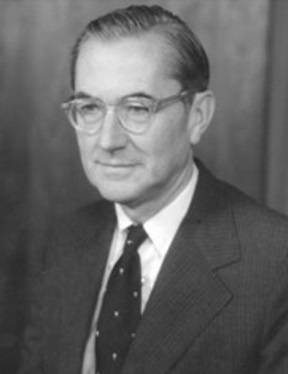April 27 is the 117th day of the year (118th in leap years) in the Gregorian calendar. There are 248 days remaining until the end of the year.
Holidays
- Christian feast days:
- King’s Day (Netherlands, Aruba, Curaçao, Sint Maarten) (celebrated on April 26 if April 27 falls on a Sunday)
- Day of Russian Parliamentarism (Russia)
- Day of the Uprising Against the Occupying Forces (Slovenia)
- Flag Day (Moldova)
- Freedom Day (South Africa)
- Independence Day (Sierra Leone), celebrates the independence of Sierra Leone from United Kingdom in 1961.
- Independence Day (Togo), celebrates the independence of Togo from France in 1960.
- National Day (Mayotte)
- National Day (Sierra Leone)
- National Veterans’ Day (Finland)
History
In 33 BC, Lucius Marcius Philippus, step-brother to the future emperor Augustus, celebrates a triumph for his victories while serving as governor in one of the provinces of Hispania.
In 395, Emperor Arcadius marries Aelia Eudoxia, daughter of the Frankish general Flavius Bauto. She becomes one of the more powerful Roman empresses of Late Antiquity.
In 629, Shahrbaraz is crowned as king of the Sasanian Empire.
In 711, Islamic conquest of Hispania: Moorish troops led by Tariq ibn Ziyad land at Gibraltar to begin their invasion of the Iberian Peninsula (Al-Andalus).

In 1296, First War of Scottish Independence: John Balliol‘s Scottish army is defeated by an English army commanded by John de Warenne, 6th Earl of Surrey at the Battle of Dunbar. Balliol was King of Scots from 1292 to 1296. Little is known of his early life. After the death of Margaret, Maid of Norway, Scotland entered an interregnum during which several competitors for the Crown of Scotland put forward claims. Balliol was chosen from among them as the new King of Scotland by a group of selected noblemen headed by King Edward I of England.
Edward used his influence over the process to subjugate Scotland and undermined Balliol’s personal reign by treating Scotland as a vassal of England. Edward’s influence in Scottish affairs tainted Balliol’s reign and the Scottish nobility deposed him and appointed a Council of Twelve to rule instead. This council signed a treaty with France known as the Auld Alliance.
In retaliation, Edward invaded Scotland, starting the Wars of Scottish Independence. After a Scottish defeat in 1296, Balliol abdicated and was imprisoned in the Tower of London. Eventually, Balliol was sent to his estates in France and retired into obscurity, taking no more part in politics. Scotland was then left without a monarch until the accession of Robert the Bruce in 1306. John Balliol’s son Edward Balliol would later exert a claim to the Scottish throne against the Bruce claim during the minority of Robert’s son David.
In 1509, Pope Julius II places the Italian state of Venice under interdict.
In 1521, Battle of Mactan: Explorer Ferdinand Magellan is killed by natives in the Philippines led by chief Lapu-Lapu.
In 1522, Combined forces of Spain and the Papal States defeat a French and Venetian army at the Battle of Bicocca.
In 1539, Re-founding of the city of Bogotá, New Granada (now Colombia), by Nikolaus Federmann and Sebastián de Belalcázar.
In 1565, Cebu is established becoming the first Spanish settlement in the Philippines.
In 1578, Duel of the Mignons claims the lives of two favourites of Henry III of France and two favorites of Henry I, Duke of Guise.
In 1595, The relics of Saint Sava are incinerated in Belgrade by the Ottomans, where today the largest Orthodox church building in the world stands
In 1650, The Battle of Carbisdale: A Royalist army from Orkney invades mainland Scotland but is defeated by a Covenanter army.
In 1667, The blind and impoverished John Milton sells the copyright of Paradise Lost for £10.
In 1749, First performance of George Frideric Handel‘s Music for the Royal Fireworks in Green Park, London.
In 1773, the British Parliament passed the Tea Act of 1773. The principal objective was to reduce the massive surplus of tea held by the financially troubled British East India Company in its London warehouses and to help the struggling company survive. A related objective was to undercut the price of illegal tea, smuggled into Britain’s North American colonies. This was supposed to convince the colonists to purchase Company tea on which the Townshend duties were paid, thus implicitly agreeing to accept Parliament’s right of taxation.
The Act granted the Company the right to directly ship its tea to North America and the right to the duty-free export of tea from Britain, although the tax imposed by the Townshend Acts and collected in the colonies remained in force. It received the royal assent on May 10, 1773.
Colonists in the Thirteen Colonies recognized the implications of the Act’s provisions, and a coalition of merchants, smugglers, and artisans similar to that which had opposed theStamp Act 1765 mobilized opposition to delivery and distribution of the tea. The company’s authorised consignees were harassed, and in many colonies successful efforts were made to prevent the tea from being landed. In Boston, this resistance culminated in the Boston Tea Party on December 16, 1773, when colonists (some disguised as Native Americans) boarded tea ships anchored in the harbour and dumped their tea cargo overboard. Parliamentary reaction to this event included passage of the Coercive Acts, designed to punish Massachusetts for its resistance, and the appointment of General Thomas Gage as royal governor of Massachusetts. These actions further raised tensions that broke out into theAmerican War of Independence in April 1775.
In 1777, American Revolutionary War: The Battle of Ridgefield: A British invasion force engages and defeats Continental Army regulars and militia irregulars at Ridgefield, Connecticut.
In 1805, First Barbary War: United States Marines and Berbers attack the Tripolitan city of Derna (The “shores of Tripoli” part of the Marines’ hymn).
In 1810, Beethoven composes Für Elise.
In 1813, War of 1812: American troops capture the capital of Upper Canada in the Battle of York (present day Toronto, Canada).
In 1813, Zebulon Pike, American general and explorer (b. 1779) was killed by flying rocks and other debris when the withdrawing British garrison blew up its ammunition magazine as Pike’s troops approached Fort York. His body was brought by ship back to Sackets Harbor, where his remains were buried at the military cemetery. He was an American brigadier general and explorer for whom Pikes Peak in Colorado is named. As a United States Army captain in 1806–1807, he led the Pike Expedition to explore and document the southern portion of the Louisiana territory and to find the headwaters of the Red River, during which he recorded the discovery of what later was called Pikes Peak. Captured by the Spanish while wandering in present-day Colorado after his party got confused in its travels, Pike and his men were taken to Chihuahua, present-day Mexico and questioned by the governor. They were released later in 1807 at the border of Louisiana. In 1810 Pike published an account of his expeditions, a book so popular that it was translated into French, German and Dutch for publication in Europe. He later achieved the rank of brigadier general in the Army, serving during the War of 1812. He was killed during the Battle of York, which the United States won
In 1840, Foundation stone for new Palace of Westminster, London, is laid by wife of Sir Charles Barry.
In 1861, American President Abraham Lincoln suspends the writ of habeas corpus.
In 1861, West Virginia seceded from Virginia after Virginia seceded from the U.S. It was later made into a U.S. state.
In 1865, The New York State Senate creates Cornell University as the state‘s land grant institution.
In 1865, The steamboat SS Sultana, carrying 2,400 passengers, explodes and sinks in the Mississippi River, killing 1,700, most of whom are Union survivors of the Andersonville and Cahaba Prisons.
In 1865, Cornell University was chartered in Ithaca, N.Y.
In 1882, Ralph Waldo Emerson, American poet (b. 1803) died from pneumonia. He was an American essayist, lecturer, and poet, who led the Transcendentalist movement of the mid-19th century. He was seen as a champion of individualism and a prescient critic of the countervailing pressures of society, and he disseminated his thoughts through dozens of published essays and more than 1,500 public lectures across the United States. Emerson gradually moved away from the religious and social beliefs of his contemporaries, formulating and expressing the philosophy of Transcendentalism in his 1836 essay, Nature. Following this ground-breaking work, he gave a speech entitled “The American Scholar” in 1837, which Oliver Wendell Holmes, Sr. considered to be America’s “Intellectual Declaration of Independence”. Emerson wrote most of his important essays as lectures first, then revised them for print. His first two collections of essays – Essays: First Series and Essays: Second Series, published respectively in 1841 and 1844 – represent the core of his thinking, and include such well-known essays as Self-Reliance, The Over-Soul, Circles, The Poet and Experience. Together with Nature, these essays made the decade from the mid-1830s to the mid-1840s Emerson’s most fertile period. Emerson wrote on a number of subjects, never espousing fixed philosophical tenets, but developing certain ideas such as individuality, freedom, the ability for humankind to realize almost anything, and the relationship between the soul and the surrounding world. Emerson’s “nature” was more philosophical than naturalistic: “Philosophically considered, the universe is composed of Nature and the Soul.”
In 1904, The Australian Labor Party becomes the first such party to gain national government, under Chris Watson.
In 1909, Sultan of Ottoman Empire Abdul Hamid II is overthrown, and is succeeded by his brother, Mehmed V.
In 1911, Following the resignation and death of William P. Frye, a compromise is reached to rotate the office of President pro tempore of the United States Senate.
In 1914, Honduras becomes a signatory to the Buenos Aires copyright treaty.
In 1927, Carabineros de Chile (Chilean national police force and gendarmery) are created.
In 1936, The United Auto Workers (UAW) gains autonomy from the American Federation of Labor.
In 1941, World War II: German troops enter Athens.
In 1941 – World War II: The Communist Party of Slovenia, the Slovene Christian Socialists, the left-wing Slovene Sokols (also known as “National Democrats”) and a group of progressive intellectuals establish the Liberation Front of the Slovenian People.
In 1945, World War II: German troops are finally expelled from Finnish Lapland.
In 1945, World War II: Benito Mussolini is arrested by Italian partisans in Dongo, while attempting escape disguised as a German soldier.
In 1950, Apartheid: In South Africa, the Group Areas Act is passed formally segregating races.
In 1953, Operation Moolah is initiated by U.S. General Mark W. Clark against Communist pilots in the Korean War.
In 1960, Togo gains independence from French-administered UN trusteeship.
In 1961, Sierra Leone is granted its independence from the United Kingdom, with Milton Margai as the first Prime Minister.

In 1965, Edward R. Murrow, American journalist (b. 1908) dies after developing lung cancer. He was an American broadcast journalist. He first came to prominence with a series of radio news broadcasts during World War II, which were followed by millions of listeners in the United States. Fellow journalists Eric Sevareid, Ed Bliss, Bill Downs, Dan Rather, and Alexander Kendrick considered Murrow one of journalism’s greatest figures, noting his honesty and integrity in delivering the news. A pioneer of television news broadcasting, Murrow produced a series of TV news reports that helped lead to the censure of Senator Joseph McCarthy. His colleague and friend Eric Sevareid said of him, “He was a shooting star; and we will live in his afterglow a very long time.” CBS carried a memorial program, which included a rare on-camera appearance by Paley.
In 1967, Expo 67 officially opens in Montreal, Canada with a large opening ceremony broadcast around the world. It opens to the public the next day.
In 1970, Arthur Shields, Irish-American actor (b. 1896) died. He was an Irish stage and film actor. Born into an Irish Protestant family in Portobello, Dublin, he started acting in the Abbey Theatre when still a young man. He was the younger brother of Oscar-winning actor Barry Fitzgerald. An Irish nationalist, he fought in the Easter Rising of 1916. He was captured and was interned in Frongoch, North Wales. He afterwards returned to the Abbey theatre. In 1936 John Ford brought him to the United States to act in a film version of The Plough and the Stars. He later returned to the U.S. and for health reasons, he decided to reside in California. He died at his home in Santa Barbara, California, aged 74. Some of his memorable roles were in John Ford films. Shields portrayed the Reverend Playfair in Ford’s The Quiet Man, opposite John Wayne, Maureen O’Hara and his brother, Barry Fitzgerald. He played Dr. Laughlin in She Wore a Yellow Ribbon with Wayne and Joanne Dru, and appeared yet again with Wayne and Barry Fitzgerald in Ford’s Long Voyage Home. His other films include: Little Nellie Kelly, The Keys of the Kingdom, The Fabulous Dorseys, Gallant Journey, The Shocking Miss Pilgrim, Drums Along the Mohawk, Lady Godiva, National Velvet and The River. He also made television appearances including a 1958 role on Perry Mason as Dr. George Barnes in “The Case of the Screaming Woman.”
In 1974, Ten thousand march in Washington, D.C., calling for the impeachment of U.S. President Richard Nixon
In 1977, Twenty-eight people are killed in the Guatemala City air disaster.
In 1978, Former United States President Nixon aide John D. Ehrlichman is released from an Arizona prison after serving 18 months for Watergate-related crimes.
In 1981, Xerox PARC introduces the computer mouse.
In 1986, The City of Prypiat as well as the surrounding areas are evacuated due to Chernobyl Disaster
In 1987, The U.S. Department of Justice bars Austrian President Kurt Waldheim from entering the United States, saying he had aided in the deportation and execution of thousands of Jews and others as a German Army officer during World War II.
In 1989, The April 27 Demonstration,a student-led protest responding to the April 26 Editorial, during the Tiananmen Square protests of 1989.
In 1992, The Federal Republic of Yugoslavia, comprising Serbia and Montenegro, is proclaimed.
In 1992 – Betty Boothroyd becomes the first woman to be elected Speaker of the British House of Commons in its 700-year history.
In 1992 – The Russian Federation and 12 other former Soviet republics become members of the International Monetary Fund and the World Bank.
In 1993, All members of the Zambia national football team lose their lives in a plane crash off Libreville, Gabon en route to Dakar, Senegal to play a 1994 FIFA World Cup qualifying match against Senegal.
In 1994, South African general election, 1994: The first democratic general election in South Africa, in which black citizens could vote. The Interim Constitution comes into force.
In 1996, The 1996 Lebanon war ends.
In 1996, William Colby, American diplomat, 10th Director of Central Intelligence (b. 1920) dies. Colby spent a career in intelligence for the United States, culminating in holding the post of the director of central intelligence (DCI) from September 1973 to January 1976. During World War II Colby served with the Office of Strategic Services. After the war he joined the newly created Central Intelligence Agency. Before and during the Vietnam War, Colby served as chief of station in Saigon, chief of the CIA’s Far East Division, and head of the Civil Operations and Rural Development effort, as well as overseeing the Phoenix Program. After Vietnam, Colby became director of central intelligence and during his tenure, under intense pressure from the U.S. Congress and the media, adopted a policy of relative openness about U.S. intelligence activities to the Senate Church Committee and House Pike Committee. Colby served as DCI under President Richard Nixon and President Gerald Ford and was replaced by future president George H.W. Bush on January 30, 1976.
In 2002, The last successful telemetry from the NASA space probe Pioneer 10.
In 2005, The superjumbo jet aircraft Airbus A380 makes its first flight from Toulouse, France.
In 2006, Construction begins on the Freedom Tower for the new World Trade Center in New York City.
In 2007, Estonian authorities remove the Bronze Soldier, a Soviet Red Army war memorial in Tallinn, amid political controversy with Russia.
In 2011, The April 25–28, 2011 tornado outbreak devastates parts of the Southeastern United States, especially the states of Alabama, Mississippi, Georgia, and Tennessee. 205 tornadoes touched down on April 27 alone, killing more than 300 and injuring hundreds more.
In 2011, United Nations Security Council Resolution 1978 and 1979 are adopted.
In 2012, At least four explosions hit the Ukrainian city of Dnipropetrovsk with at least 27 people injured.
In 2014, Popes John XXIII and John Paul II are declared saints in the first papal canonization since 1954.
In 2014, A tornado outbreak over much of the eastern United States kills 35 people.
In 2015, Loretta Lynch sworn in as attorney general. Loretta Lynch was sworn in as U.S. attorney general, replacing Eric Holder after a long-delayed confirmation vote. Lynch is the 83rd person to serve in the post, and the first African-American woman. Lynch said her confirmation showed that “we can do anything.” She pledged fairness, saying, “We can restore trust and faith both in our laws and in those of us who enforce them.” Vice President Joe Biden swore in Lynch, whom President Obama nominated in November, saying it was “about time” she got the chance to get to work. [The Washington Post]
In 2018, The Panmunjom Declaration is signed by the two Koreas, officially declaring their intentions to end of the Korean conflict.




